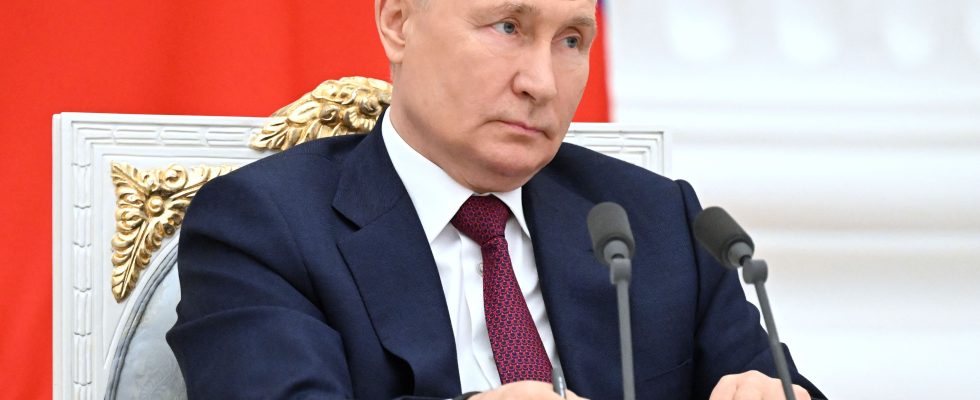It is as an authoritarian warlord that Vladimir Putin, in power for a quarter of a century, approaches his campaign to stay in the Kremlin for six more years. The “new Tsar” has decided, unsurprisingly, to be a candidate in the presidential elections on March 17 in Russia. “I am going to introduce myself,” said this Friday, December 8, the master of the Kremlin to a veteran of the conflict in Ukraine on the sidelines of a presentation of military decorations. “I understand that today there is no other choice,” he said, according to images broadcast by the state television channel Rossiya-24.
“Our president has never shied away and will never shirk his responsibilities. Today he proved it again,” Valentina Matvienko, the speaker of the upper house of Parliament, reacted on Telegram.
No competitors
No critic of the Kremlin should be able to stand in the vote, while the authorities have for years repressed the opposition. This repression accelerated with the offensive in Ukraine.
At 71, the Russian leader has the right, thanks to a constitutional reform in 2020, to run in 2024, then in 2030, making it theoretically possible to remain in power until 2036, when he will be 84 years old. The vote will be held on March 17, shortly after the second anniversary of the launch of the ongoing offensive in Ukraine and on the eve of the tenth anniversary of Russia’s annexation of the first Ukrainian territory in 2014. , the Crimean peninsula. After a year 2022 marked by setbacks on the front and a volley of Western sanctions, Vladimir Putin appears at the end of 2023 in a better position with the failure of the counter-offensive launched this summer by Ukraine, the crumbling of European support and American in kyiv and the recovery of the national economy.
Almost all major opponents, such as anti-corruption activist Alexei Navalny, have been thrown in prison or driven into exile and any criticism of the assault on Ukraine is severely repressed.
An undivided reign
The Russian Electoral Commission announced Friday that the vote will be held over three days, from March 15 to 17, a practice introduced during the Covid-19 pandemic, but denounced by the opposition as a means of facilitating fraud.
Vladimir Putin was president from 2000 to 2008 and has been again since 2012. Affected by the term limit, he ceded the Kremlin from 2008 to 2012 to an ally, Dmitri Medvedev, but remained as Prime Minister. strongman of Russia.
Born in 1952 in Leningrad (present-day Saint Petersburg), he first led a career as an agent for the KGB, the Soviet secret services, notably in East Germany, before returning to Russia after the dislocation of the USSR. He began his political career at the town hall of Saint Petersburg, before quickly joining the Kremlin and climbing the ranks, cultivating the image of a firm and efficient man, in the midst of the tumult of the 1990s in Russia.
Appointed Prime Minister, then succeeding Boris Yeltsin after his resignation on December 31, 1999, Vladimir Putin gradually brought the country into line, dismantling the democratic gains of the 1990s and advocating a power policy nostalgic for the USSR and increasingly more conservative. He has launched or supported four wars since coming to power: the second Chechen war (1999-2009), the invasion of Georgia (2008), the intervention in Syria (2015) and the attacks on Ukraine in first in 2014 then in 2022.
Since a controversial constitutional reform adopted in the midst of a pandemic in 2020, he has the possibility of remaining in the Kremlin until 2036. His spokesperson, Dmitri Peskov, indicated in mid-November that Vladimir Putin had no credible competitor. The work of the media during this election will be complicated by a tightening of coverage conditions decided by the authorities in November. For example, independent journalists, bloggers and Russian media employees working from abroad should not have access to voting or counting. The election will also take place in the Russian-occupied regions of Ukraine, where martial law is currently in force.
